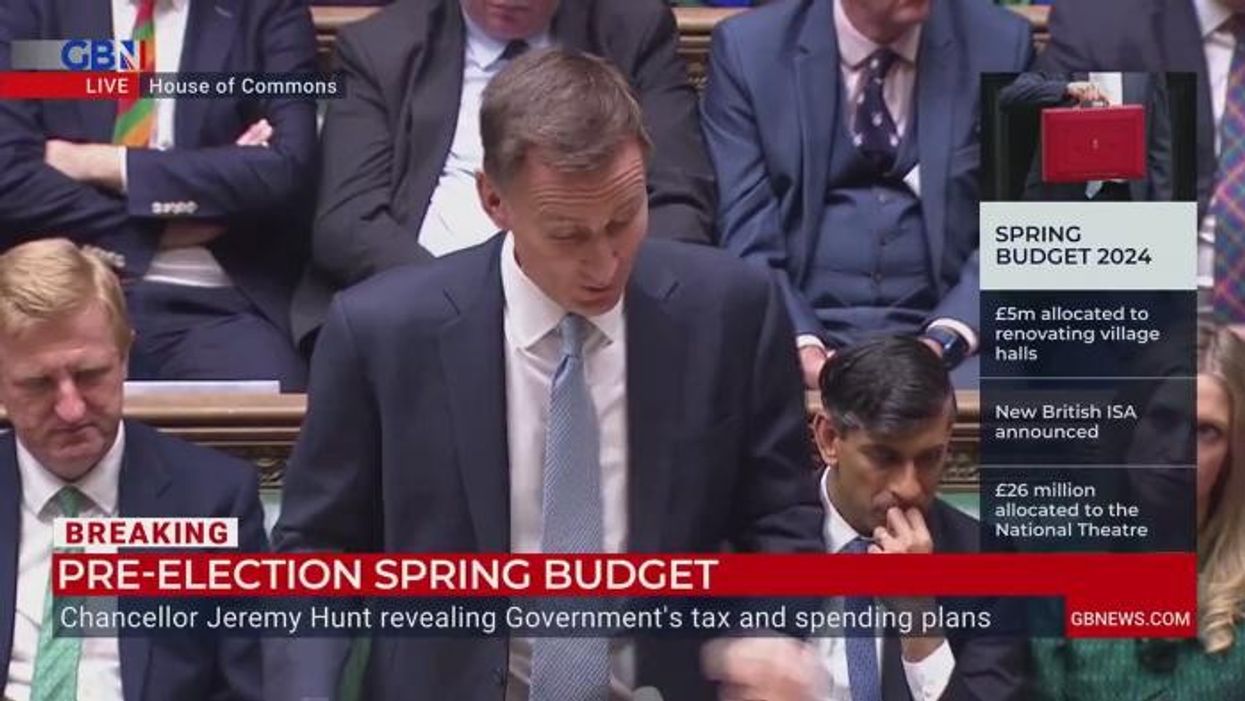Hundreds of thousands of parents could be missing out on thousands in state pension boost – are you at risk?
Parents could boost state pension entitlement via the National Insurance credits that come with Child Benefit
Don't Miss
Most Read
Trending on GB News
Hundreds of thousands of people could have missed out on a vital way to boost state pension entitlement.
The warning comes as figures published today show one million fewer families claim Child Benefit since the Government introduced the High Income Child Benefit tax Charge (HICBC) in 2013.
There are just 6.91 million families getting Child Benefit payments - down from a peak of 7.92 million in summer 2012, HMRC figures show.
Between 2003 and 2012, the number of families receiving Child Benefit increased each year.
It’s sparked concern that hundreds of thousands of families who have been hit by the HICBC, which until this year affected households in which there was an individual income of £50,000 or more, have failed to claim the National Insurance credits associated with Child Benefit.
People can get National Insurance credits via a Child Benefit claim for children under the age of 12.
Have you got a money story you'd like to share? Get in touch by emailing money@gbnews.uk.

Hundreds of thousands of parents could be missing out on National Insurance credits which can boost state pension entitlement
GETTY
One year of missed credits could lead to a reduction of £329 per year in state pension, equating to around £6,500 over a typical 20-year retirement, according to calculations by pensions consultancy LCP.
Those affected by the HICBC can opt to waive the payments but still claim the credits by filling out the CH2 form, however, there’s concern many families seem unaware of this option.
While 7.65 million families currently claim Child Benefit, 741,000 have opted out of the payments. There’s concern hundreds of thousands more people don’t know they can still claim the National Insurance credits.
The Government has promised to create a new type of National Insurance credit for families who could have claimed Child Benefit, since 2013, but didn’t.
However, the necessary legislation has not yet been brought forward.
Steve Webb, partner at LCP, said today’s figures show the “dramatic” impact of the HICBC, adding: “An important knock-on effect is that hundreds of thousands of parents may have missed out on vital National Insurance credits towards their state pension.
“Although the government has proposed a new way of crediting people in, we still lack important detail and there is a risk that these new credits will suffer from the same non take-up problems we see in the existing system.
“This issue needs to be resolved as a matter of urgency.”
Helen Morrissey, head of retirement analysis at Hargreaves Lansdown, warned avoiding the Child Benefit tax charge could have “severe impacts” on income in the long term, as parents risk missing out on “valuable” National Insurance credits towards their state pension.
These credits can help preserve parents’ state pension entitlement during time they may spend out of work in order to care for their children.
“Not claiming Child Benefit leaves gaps in people’s records, leading to lower state pensions as a result,” Morrissey said.
“It’s a real hidden horror of the system that more people need to know about.”
LATEST DEVELOPMENTS:
She added: “The government did take steps to remedy this issue when they realised the extent to which parents were opting out. You can now tick a box that says you want to claim the National Insurance credit without actually receiving the Child Benefit money.
“This saves you the admin headache of filling out a self-assessment tax return. However, the fact that the number of families claiming Child Benefit continues to fall would suggest that not everyone is aware that they can do this.”
The High Income Child Benefit tax Charge threshold was raised from £50,000 to £60,000 from this month, and the rate at which the charged kicked in has slowed.
Previously, people with an individual income of £60,000 or more would have lost the entirety of their Child Benefit to the levy, but high earners now only lose all of the benefit when they make £80,000 or more.









